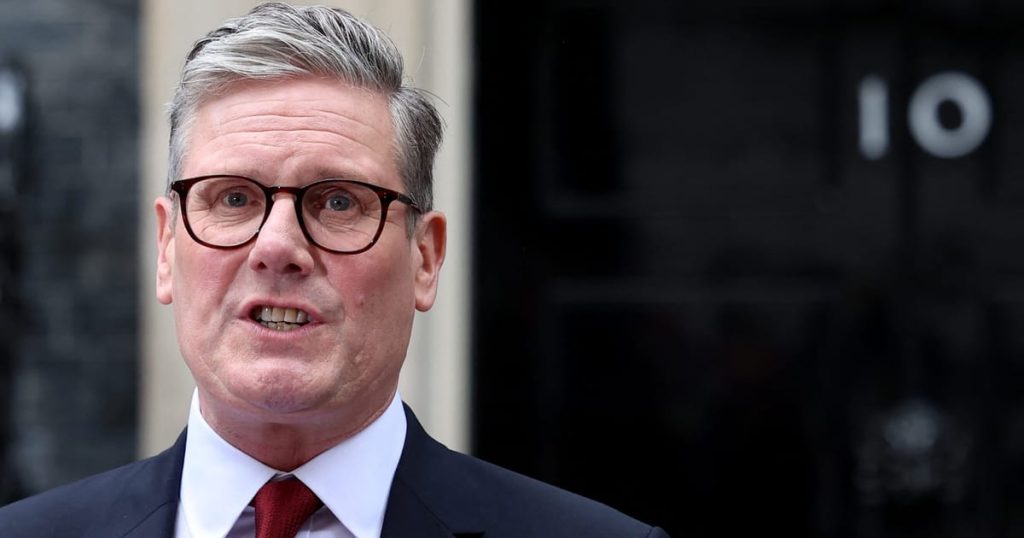The nascent efforts by UK Labour leader Keir Starmer to recalibrate the post-Brexit relationship with the European Union appear to be facing significant headwinds. Brussels, according to reports, has outlined a stringent set of preconditions before engaging in any formal renegotiation of the existing Trade and Cooperation Agreement (TCA), the bedrock of the current UK-EU trade relationship. This stance suggests a cautious and perhaps even skeptical approach towards Starmer’s overtures, indicating that a simple reset of relations may be more complex than initially envisioned. The EU appears determined to protect its interests and maintain a firm negotiating position.
The crux of the EU’s preconditions centers around several key areas, notably fishing rights, food trade regulations, and youth mobility. On fishing, a highly contentious issue throughout the Brexit negotiations, the EU is insistent on maintaining the status quo. This signifies a rejection of any potential concessions to the UK fishing industry, which has long lobbied for greater access to British waters. The EU document, as reported, underscores the importance of the current fishing arrangements for member states, prioritizing the preservation of existing quotas and access rights.
Regarding food trade, the EU demands full alignment of UK regulations with existing EU standards on production and processing safety. This implies a comprehensive adoption of EU rules into British law, a move that could potentially limit the UK’s regulatory autonomy and flexibility post-Brexit. The EU has dismissed the possibility of recognizing British rules as ‘equivalent’, suggesting a strict adherence to the principle of regulatory alignment to ensure seamless trade and prevent any potential divergence in standards. This stance could prove a sticking point in negotiations, particularly given the UK’s emphasis on regaining regulatory control after leaving the EU.
Furthermore, the EU is keen to establish a youth mobility scheme similar to the Erasmus exchange program, a flagship initiative facilitating educational and cultural exchanges within the bloc. This proposal, however, is likely to face resistance from certain quarters within the UK, where concerns about increased migration have previously led to the rejection of similar schemes. The inclusion of this demand highlights the EU’s desire to maintain close ties with the UK, particularly in the areas of education and cultural exchange, even in the context of a redefined post-Brexit relationship.
The leaked document outlining these preconditions reveals a strategic approach by the EU, aiming to establish clear parameters before engaging in any substantive negotiations with the UK. This proactive stance signals the EU’s determination to safeguard its interests and avoid being drawn into discussions without a shared understanding of the fundamental principles governing the future relationship. The insistence on maintaining the status quo on fishing rights, demanding full regulatory alignment on food trade, and pushing for a youth mobility scheme demonstrates the EU’s desire to retain a strong influence over key aspects of the post-Brexit relationship.
For Keir Starmer, these preconditions present a significant challenge as he seeks to renegotiate the TCA and foster closer ties with the EU. Navigating these complex demands will require careful consideration of domestic political sensitivities, particularly regarding migration and regulatory autonomy. Starmer will need to balance the desire for improved relations with the EU against the potential political costs of accepting conditions that could be perceived as compromising UK sovereignty. The road to a reset of the UK-EU relationship, therefore, appears fraught with complexities, and the outcome of any future negotiations remains uncertain. The EU’s preconditions set the stage for a potentially protracted and challenging process, requiring both sides to demonstrate flexibility and pragmatism to achieve a mutually beneficial outcome.














